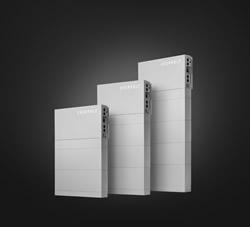Top 10 universities offer half the number of sustainability courses on average compared to lesser ranked rivals
Research conducted by EIT InnoEnergy, the world's largest sustainable energy accelerator, reveals that the world's top ten universities including the University of Cambridge and Harvard University offer, on average, 2.8 courses focusing on sustainability and energy, compared to a global average of 5.6, as the accelerator calls for a more robust and comprehensive decarbonisation outlook by all major education players.
The research considered the standalone sustainable educational output of 27 leading institutions across Europe, the US, Asia and Latin America, with a focus on institutions ranked highly by The Times Higher Education 2020 report and feeder schools to EIT InnoEnergy's postgraduate degrees.
The output highlighted limited sustainability courses (under 1%) at the University of Oxford (ranked 1st) and Harvard University (7th). The University of Cambridge (3rd) is marginally higher at 1.21%. However, this is significantly less than the likes of institutions such as Universidade de São Paulo, which falls outside of the top 200 Times ranked institutions, but has a greater concentration (7%) of courses teaching specific sustainable energy skills.
There is clear disparity globally - with more than 6% of all programs taught in Latin America providing a sustainability focus, compared to around 1% in Europe and Asia. Younger institutions are also offering a greater number of courses with a sustainability focus. Shanghai Jiao Tong University is the global leader with 11 sustainability programmes, but this expands when you consider some degrees can be taken in both English and Chinese creating wider accessibility.
Out of all 124 sustainability-related courses identified in the research, 51% focus on the areas of the environment including course such as management or engineering. Within this broad topic, modules typically focus on managing or controlling areas like air pollution and water quality, rather than equipping students to solve these issues. In-depth, specialist topics such as smart cities, renewables and wind make up only 2% of all energy and sustainability-related degrees.
A recent study by EIT InnoEnergy further highlights that the gap between education and industry is widening. The survey of more than 200 members of EIT InnoEnergy's ecosystem of industrial partners, innovation projects and start-ups found that energy storage, energy efficiency and renewable energy skills are in highest demand. This is in stark contrast to the education research which shows only one degree available for renewable energy and wind.
EIT InnoEnergy Education Director, Prof.Dr.ir. Frank Gielen said: "While we recognise the value of general engineering degrees in supporting the sustainable energy cause, there is a widening gap between the specific, in-depth skills needs of industry and what higher education institutions are offering. It is not only energy businesses that have a role to play in accelerating the energy transition. We, as a society, are all responsible. We need to overhaul the current university ranking system to have a positive impact on the energy transition and our climate - with both courses offered and sustainability approaches carried out by the universities. Sustainability should be a primary concern, not an optional module in broader courses."
Notes to editors
The research was undertaken to provide a top-level picture of sustainable energy education across the world. The research is designed to give a snapshot of the sustainability education landscape in these geographies and highlights who the leaders in this space are and where gaps in sustainability education remains. To collect the data, institutions that rank highly across Asia, Europe, Latin America and the US were selected. While efforts were taken to make these the top 7 in every region, the research broadened the scope to look at some lesser ranked institutions in different countries to attract a slightly wider geography as well as feeder schools for EIT InnoEnergy. The research considers undergraduate degrees, masters and PHDs at these institutions that have a sustainable energy focused title. Minors, free electives and other course make-ups were not extensively analyzed so the research remained focused on the high-level outputs of degree courses. The research also then considered
- Total degree programs offered, again excluding minors, free electives or other course components
- The primary focus of the degree based on broad parameters
About EIT InnoEnergy
EIT InnoEnergy is the leading engine for innovation and entrepreneurship in sustainable energy across Europe and beyond.
EIT InnoEnergy has provided investments and added value services to some 380 sustainable energy related start-ups, of those 30+ are in storage, including flagship players like Northvolt, a vertically integrated sustainable battery manufacturer, and Skeleton Technologies, a global leader in ultracapacitors who is playing a key role within leading OEMs.
Following the mandate of the EU Commission, EIT InnoEnergy is leading the industrial stream of the European Battery Alliance in 2017, a European Commission initiative to build a strong and competitive European battery industry.
EIT InnoEnergy was established in 2010, has invested €560 million in sustainable energy innovations and is supported by the European Institute of Innovation and Technology (EIT).
https://innoenergy.com/
Featured Product

